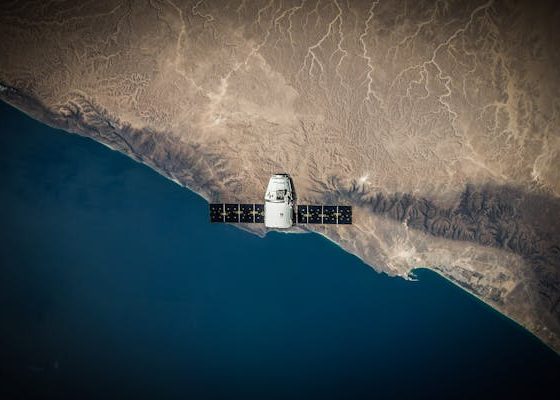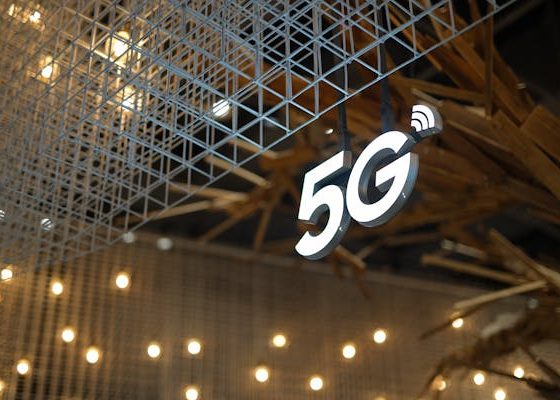
In today’s rapidly evolving digital landscape, technology continues to break boundaries and reshape the way we live, work, and interact. The latest innovations are not only transforming industries but also enhancing our everyday experiences. This article delves into the most impactful new technology trends, exploring their potential and the changes they bring to various sectors.
Artificial Intelligence and Machine Learning
Artificial Intelligence (AI) and Machine Learning (ML) have been at the forefront of technological advancement. AI refers to the simulation of human intelligence in machines, enabling them to perform tasks that typically require human intellect. ML, a subset of AI, focuses on the development of algorithms that allow computers to learn and improve from experience.
Applications and Impact
- Healthcare: AI and ML are revolutionizing healthcare by enabling more accurate diagnostics, personalized treatment plans, and efficient drug discovery processes. AI-powered tools can analyze vast amounts of medical data, helping doctors make better-informed decisions.
- Finance: In the finance sector, AI-driven algorithms are used for fraud detection, risk assessment, and automated trading. These technologies enhance security and efficiency, providing better service to customers.
- Retail: AI and ML are transforming the retail industry by optimizing supply chain management, improving customer service through chatbots, and offering personalized shopping experiences.
- Autonomous Vehicles: Self-driving cars, powered by AI, are poised to revolutionize transportation. These vehicles use advanced algorithms to navigate, reducing the risk of accidents and offering more efficient travel.
Internet of Things (IoT)
The Internet of Things (IoT) refers to the network of interconnected devices that communicate and exchange data with each other. This new technology trend is creating smarter environments in homes, cities, and industries.
Applications and Impact
- Smart Homes: IoT devices in homes, such as smart thermostats, security systems, and appliances, provide convenience, energy efficiency, and enhanced security.
- Smart Cities: IoT is playing a crucial role in the development of smart cities, where connected infrastructure can manage resources more efficiently, reduce traffic congestion, and improve public services.
- Industrial IoT: In manufacturing, IoT enables real-time monitoring and predictive maintenance of equipment, improving efficiency and reducing downtime.
- Healthcare: Wearable IoT devices can monitor patients’ health in real-time, providing valuable data to healthcare providers and enabling remote care.
5G Technology
The fifth generation of mobile network technology, 5G, is set to revolutionize connectivity with its high-speed, low-latency capabilities. This new technology trend promises to unlock new possibilities across various sectors.
Applications and Impact
- Enhanced Mobile Experience: 5G offers faster download and upload speeds, improving the overall mobile experience for users. It supports high-definition streaming, online gaming, and seamless video calls.
- IoT Expansion: The high capacity and low latency of 5G networks enable the proliferation of IoT devices, supporting their real-time communication and data exchange.
- Remote Work and Education: 5G technology enhances remote work and online education by providing reliable and fast internet connections, supporting virtual meetings, and interactive learning.
- Healthcare: 5G facilitates telemedicine, allowing doctors to conduct remote consultations and perform surgeries with the help of robotic systems.
Augmented Reality (AR) and Virtual Reality (VR)
AR and VR technologies are creating immersive experiences that blend the physical and digital worlds. These new technology trends are transforming entertainment, education, and various industries.
Applications and Impact
- Gaming and Entertainment: AR and VR are revolutionizing gaming and entertainment by offering immersive experiences that engage users in new and exciting ways.
- Education: In education, AR and VR provide interactive learning experiences, allowing students to explore virtual environments and gain hands-on experience.
- Healthcare: VR is being used for medical training, enabling doctors to practice procedures in a simulated environment. AR assists surgeons by overlaying digital information on the physical world during operations.
- Retail: AR technology allows customers to visualize products in their own space before making a purchase, enhancing the shopping experience.
Blockchain Technology
Blockchain technology, known for its association with cryptocurrencies, is now finding applications beyond finance. This decentralized ledger system offers transparency, security, and efficiency.
Applications and Impact
- Finance: Blockchain is transforming the finance industry by enabling secure and transparent transactions, reducing fraud, and facilitating cross-border payments.
- Supply Chain Management: Blockchain enhances supply chain transparency by providing a tamper-proof record of transactions, ensuring the authenticity and traceability of products.
- Healthcare: Blockchain can secure patient data, ensuring privacy and improving the accuracy of medical records.
- Voting Systems: Blockchain offers a secure and transparent platform for electronic voting, reducing the risk of fraud and ensuring the integrity of election results.
Quantum Computing
Quantum computing is an emerging new technology trend that leverages the principles of quantum mechanics to perform complex computations at unprecedented speeds. This technology has the potential to solve problems that are currently beyond the reach of classical computers.
Applications and Impact
- Drug Discovery: Quantum computing can accelerate drug discovery by simulating molecular interactions and predicting the behavior of complex biological systems.
- Cryptography: Quantum computers can break traditional encryption methods, leading to the development of quantum-resistant cryptographic techniques.
- Optimization Problems: Industries such as logistics, finance, and manufacturing can benefit from quantum computing by solving complex optimization problems more efficiently.
- Artificial Intelligence: Quantum computing can enhance AI algorithms, enabling faster training of machine learning models and improving their accuracy.
Edge Computing
Edge computing is a new technology trend that involves processing data closer to the source rather than relying on centralized cloud servers. This approach reduces latency and improves the efficiency of data processing.
Applications and Impact
- IoT Devices: Edge computing enhances the performance of IoT devices by processing data locally, reducing the need for constant communication with remote servers.
- Autonomous Vehicles: Self-driving cars require real-time data processing for safe navigation. Edge computing enables faster decision-making by processing data at the vehicle level.
- Healthcare: Edge computing allows for real-time monitoring and analysis of patient data, enabling timely interventions and improving patient outcomes.
- Retail: Retailers can use edge computing to analyze customer data in real-time, providing personalized recommendations and improving the shopping experience.
Biotechnology
Biotechnology is another new technology trend making significant strides, with advancements in genetic engineering, synthetic biology, and personalized medicine.
Applications and Impact
- Genetic Engineering: CRISPR technology enables precise editing of genes, offering potential cures for genetic disorders and advancements in agriculture.
- Synthetic Biology: Scientists are creating synthetic organisms and bio-based materials, leading to innovations in medicine, energy, and environmental sustainability.
- Personalized Medicine: Biotechnology is driving the development of personalized medicine, where treatments are tailored to an individual’s genetic makeup, improving efficacy and reducing side effects.
- Agriculture: Biotechnology is improving crop yields and resistance to pests and diseases, ensuring food security and sustainability.
Robotics and Automation
Robotics and automation are transforming industries by enhancing efficiency, reducing costs, and improving safety. This new technology trend is particularly impactful in manufacturing, logistics, and healthcare.
Applications and Impact
- Manufacturing: Robotics and automation streamline production processes, increasing productivity and reducing errors. Collaborative robots (cobots) work alongside humans, enhancing workplace safety and efficiency.
- Logistics: Autonomous robots and drones are revolutionizing logistics by automating warehouse operations, improving inventory management, and enabling faster deliveries.
- Healthcare: Robots assist in surgeries, rehabilitation, and elderly care, providing precision, consistency, and support to healthcare professionals.
- Agriculture: Automation in agriculture includes robotic harvesters, drones for crop monitoring, and automated irrigation systems, enhancing efficiency and productivity.
Renewable Energy Technologies
The transition to renewable energy sources is a critical new technology trend driven by the need to address climate change and reduce dependency on fossil fuels.
Applications and Impact
- Solar Power: Advances in solar technology, including more efficient photovoltaic cells and solar energy storage systems, are making solar power a viable alternative to traditional energy sources.
- Wind Energy: Innovations in wind turbine design and offshore wind farms are increasing the capacity and efficiency of wind energy generation.
- Energy Storage: New battery technologies, such as solid-state batteries and flow batteries, are improving energy storage capabilities, enabling better integration of renewable energy into the grid.
- Hydrogen Fuel: Hydrogen fuel cells offer a clean energy alternative for transportation and industrial applications, with ongoing research focused on reducing costs and improving efficiency.
Cybersecurity Advances
As technology evolves, so do the threats to digital security. New cybersecurity trends are emerging to protect data and systems from increasingly sophisticated cyberattacks.
Applications and Impact
- AI-Powered Security: AI and ML are being used to detect and respond to cyber threats in real-time, enhancing the ability to prevent and mitigate attacks.
- Zero Trust Architecture: This cybersecurity approach assumes that threats could exist both inside and outside the network, requiring continuous verification of all users and devices.
- Quantum Cryptography: As quantum computing advances, quantum cryptography is being developed to create secure communication channels that are resistant to eavesdropping.
- Blockchain Security: Blockchain technology is being used to secure data transactions, ensuring integrity and transparency in various applications, including supply chains and financial services.
Conclusion
The new technology trends discussed in this article are shaping the future in profound ways. From AI and IoT to quantum computing and renewable energy, these innovations are driving progress across multiple sectors. As we continue to explore and embrace these technologies, it is essential to consider their potential impacts and ethical implications. By staying informed and adaptive, we can harness the power of new technology trends to create a better, more connected world.




